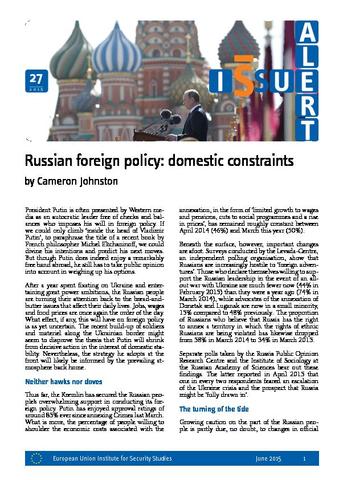You are here
Russian foreign policy: domestic constraints

President Putin is often presented by Western media as an autocratic leader free of checks and balances who imposes his will in foreign policy. If we could only climb ‘inside the head of Vladimir Putin’, to paraphrase the title of a recent book by French philosopher Michel Eltchaninoff, we could divine his intentions and predict his next moves. But though Putin does indeed enjoy a remarkably free hand abroad, he still has to take public opinion into account in weighing up his options. After a year spent fixating on Ukraine and entertaining great power ambitions, the Russian people are turning their attention back to the bread-and-butter issues that affect their daily lives. Jobs, wages and food prices are once again the order of the day. What effect, if any, this will have on foreign policy is as yet uncertain. The recent build-up of soldiers and materiel along the Ukrainian border might seem to disprove the thesis that Putin will shrink from decisive action in the interest of domestic stability. Nevertheless, the strategy he adopts at the front will likely be informed by the prevailing atmosphere back home.